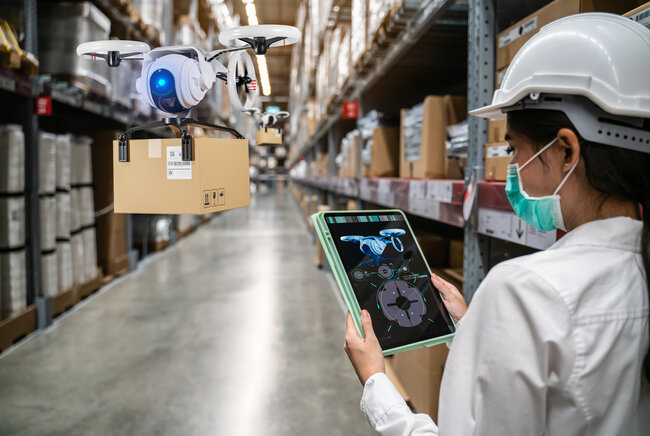Fluently: Research into the essence of human-robot collaboration in the workplace
Developing joint human-robot interactive training for workplace collaboration

In many organizations and across industries, robots are transforming the way we work. Robots are implemented to assist employees, to decrease workload, or to increase efficiency. As their capabilities continuously improve, collaboration between humans and robotic systems becomes more common and interdependent. Consequently, the role of the robots changes, and humans and robots now work closer together than ever.
True social collaboration between humans and robot
Workplace innovation advocates the joint optimization of the social and the technical system to yield optimal organizational outcomes. The EU-funded HORIZON Europe project Fluently aims at achieving true social collaboration between humans and robots while matching extremely dynamic manufacturing contexts. Robots will be equipped with a smart interface unit (called Fluently) through which they will be able to interpret the human operator’s current state, as well as speech content, speech tone and gestures. The human will also be equipped with a wearable which informs them about the robot’s state and actions.
Robo-Gym
In order to learn from and build experience with each other and to develop a common work practice, human operators and robots will take part in a human-robot interactive training at a hub that will be especially designed for this purpose (the so-called Robo-Gym). Following the training, three full scale pilots of human-robot collaboration will be conducted to validate this approach. They will be conducted in real-life manufacturing settings that incorporate various levels of automation, production dynamism, and complexity. The first pilot will be performed for the process of lithium cell batteries dismantling and recycling (fully manual).
The second pilot is the inspection and repairing of aerospace engines (partially automated). The last pilot will run in laser-based multi-techs for complex metal components manufacturing. This process is fully automated in the equipment but depends strongly on human assessment.
Partners
The Fluently project brings together 21 partners from 13 countries from in- and outside the EU. Global industrial firms and SMEs from robotics and manufacturing sectors collaborate with universities and research institutes to develop AI-based solutions to achieve true human-robot interaction.
Research team
The TU/e research team is composed of HPM staff members Pascale Le Blanc, Anna-Sophie Ulfert-Blank, Sonja Rispens, PhD-student Raquel Salcedo Gil, and a to-be-appointed postdoc researcher. Together, they will work on studying human operator requirements for optimized design of the robotic system, and designing and evaluating the human operator part of the interactive training at the Robo-Gym, focusing on human operators’ learning experiences.